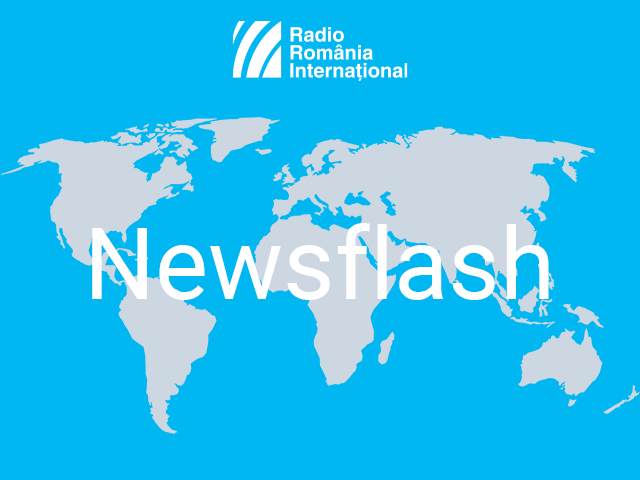January 14, 2023
A roundup of domestic and international news

Newsroom, 14.01.2023, 13:59
Culture Day. On
Friday, President Klaus Iohannis decorated artists, personalities and important
cultural institutions on the occasion of the National Culture Day, marked
annually on January 15. The distinctions were awarded as a sign of appreciation
for the work done and the major impact on the cultural space in the country and
abroad. Among those decorated are the well-known film critic Irina Margareta
Nistor, the Peles National Museum, the Hungarian State Theater in Timisoara
(west), the National Theater in Târgu Mureş (center) and the Moldova
Philharmonic in Iași (east). In the last two centuries, the cultural elites
have inspired Romanian society to step on the road to Western modernization and
democratization – said President Klaus Iohannis, who added that Romanians are
proud of personalities whose works have enriched national and universal
heritage and spirituality.
NATO. NATO
is moving to Romania some of the AWACS radar jets, currently stationed in
Germany, to watch more closely the war started by Russia in Ukraine. The planes
are scheduled to land on Tuesday at the Otopeni military base, near Bucharest.
NATO and the Ministry of Defense announced that they will carry out
surveillance flights exclusively on the
territory of the Alliance, will strengthen the presence of allied forces in the
Black Sea region, but they will also monitor Russian military activity. AWACS
aircraft can fly at altitudes of 12,000 meters and detect enemy aircraft, ships
or ground vehicles from 400 kilometers away. They can transmit information to
all NATO combat aircraft, which means they can theoretically be used as flying
command posts.
Schengen. The
Greek Minister of Migration and Asylum, Notis Mitarachi, has recently presented
in Austria, an initiative to support the accession of Romania and Bulgaria to
the Schengen area, and will visit the two countries next week – according to a press release from the Greek line ministry. Notis Mitarachi met in Vienna with the
Austrian Chancellor Karl Nehammer and the Minister of the Interior, Gerhard
Karner. In Athens’ view, the extension of Schengen through the accession of
Romania and Bulgaria will be directly beneficial for Greece, as it will be
connected by road with other EU member states. At the same time, Greece claims that
the enlargement of the Schengen area will help boost economic activities. The
Greek Ministry of Migration and Asylum recalls that, while Croatia’s
application for Schengen accession was accepted in the JHA Council in Brussels,
on December 8 last year, Romania and Bulgaria were faced with the opposition of
Austria and the Netherlands, although they successfully completed the
evaluation procedures for joining the free movement area as early as 2011.
Ukraine. The
International Atomic Energy Agency (IAEA), already present at the Zaporizhzhia nuclear
power plant occupied by the Russian army, will, in the coming days, send
experts to other Ukrainian nuclear sites, including Chernobyl – according to a
press release . IAEA Director General Rafael Grossi will personally travel to
Ukraine next week to launch the new mission. Ukrainian Prime Minister Denis Shmyhal
had announced, in December, after a meeting with Rafael Grossi, the
organization of missions aimed at securing the country’s five power plants,
without, however, giving details about the size of the missions or the timing
of their deployment. In another
development, key infrastructure points in the capital Kyiv were targeted, this morning, by a new Russian attack.
Refugees. More
than 3 million Ukrainian citizens have crossed the border to Romania since the
outbreak of the war in the neighboring country in February last year. Also,
over 100,000 have temporarily settled in Romania, and 4,000 have applied for
asylum – according to a report made public in the presence of Prime Minister
Nicolae Ciucă. At Government level, six working groups were set up by fields of
activity, which, together with the UN partners and civil society, allowed a
good management of the situation arising from the Russian aggression. At the
same time, they facilitated the accommodation of the Ukrainians in a very short
time. To manage the humanitarian crisis, so far, the Romanian Government has allocated
565 million euros, of which 200 million euros came from international partners.
The aid materialized in free transport, food, clothing, shelter, long-term
accommodation, free medical and social interventions and services, access to
the labor market and schools. (MI)




























